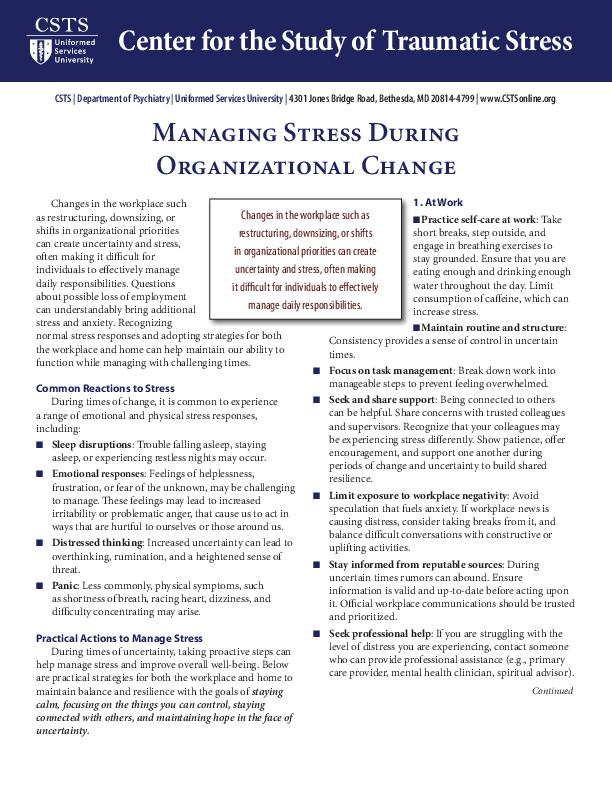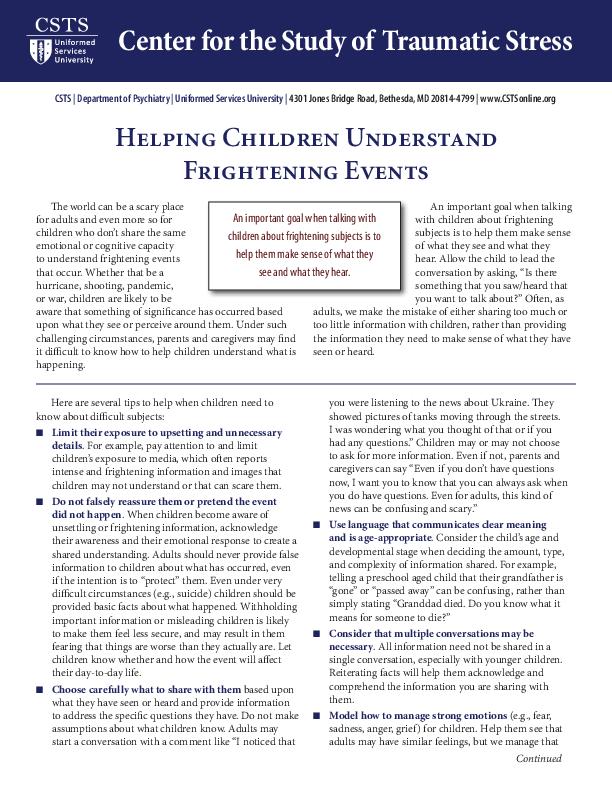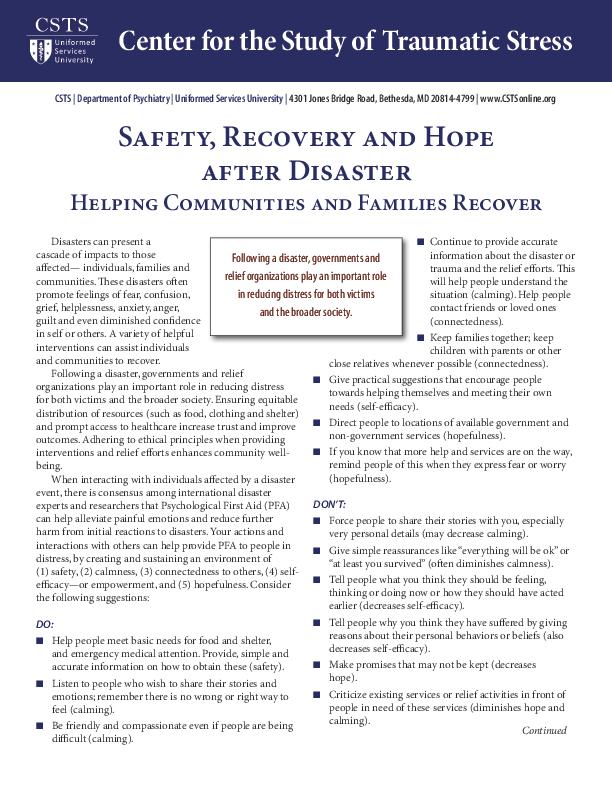|
|
Director’s MessageOur Center advances trauma-informed care through cutting edge research, education and training, and resources that draw upon our expertise in military and disaster psychiatry. . . . [more] |
DISASTER EVENTS
ISRAEL-HAMAS WAR MENTAL HEALTH RESOURCES
WAR IN UKRAINE MENTAL HEALTH RESOURCES - 3 videos added April 2024
Fact Sheets
 |
|
Publications
 |
|
Education and Training
 |
|
Research
 |
What’s New?
Managing Stress During Organizational Change
Changes in the workplace such as restructuring, downsizing, or shifts in organizational priorities can create uncertainty and stress, often making it difficult for individuals to effectively manage daily responsibilities.
Please click HERE for fact sheet
Aircraft collision on the Potomac River in Washington, D.C.
Catastrophic disasters, such as the aircraft collsion on the Potomac River in Washington, D.C., cause extreme disruption and can be distressful for individuals, families, and communities. Actions that promote the five essential elements of Psychological First Aid (safety, calming, connectedness, efficacy, and hope) can reduce individual distress and foster community sustainment through this event, as well as other disasters. Members of the community can help reduce adversity and chronic stressors by helping friends and neighbors impacted by this event. Please click HERE for easy-to-use education fact sheets with recommended actions to protect the mental health and well-being of individuals and communities impacted by the plane crash.
World Trade Center Survivor Grief Study
Although there have been many studies examining the traumatic effects of 9/11, there has been limited focus on the impact of bereavement on those affected by the tragedy. Given the trauma that all 9/11 WTC Survivors faced, it is likely that those who were bereaved on 9/11 or suffered subsequent deaths face additional challenges. The goal of this study is to examine the combined effects of bereavement and trauma on the health-related quality of life among 9/11 World Trade Center (WTC) Health Registry Survivor Enrollees. Please click HERE for more information
Brain, Behavior, & Mind 2025 Spring Conference
Brain, Behavior, & Mind is a series of global forums featuring distinguished scientists, clinicians, and leaders whose work spans neuroscience, psychiatry, psychology, and public health. Each event explores new insights in our understanding of health and illness by integrating knowledge from genes to community and from the research bench to bedside care. Our aim is to advance the science and clinical care needed for the diverse populations of the U.S. Department of Defense and the Nation who face complex and stressful environments.
The conference is sponsored by the CSTS, in collaboration with USU’s Department of Psychiatry, Neuroscience Program, Department of Family Medicine, Center for Deployment Psychology, and Brain and Behavior Hub.
Southern California wildfires
Catastrophic natural disasters, such as the Southern California wildfires cause extreme disruption and can be distressful for individuals, families and communities. For resources to help please click HERE












